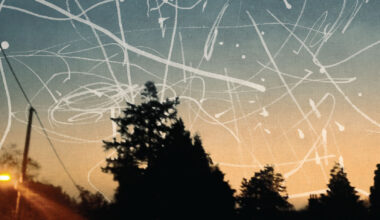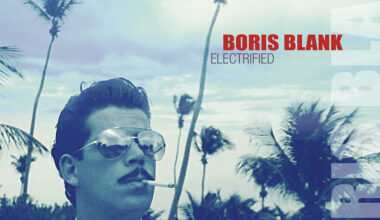Former Kraftwerk linchpin creates beauty from his own back catalogue

Warmth. There’s a word you might not expect to open a review of the first album in a decade from Karl Bartos, a member of Kraftwerk in their oft-referred to “golden age”.
It’s the word that rattled around my brain as I first listened to ‘Off The Record’, a meticulously curated, elegantly crafted collection of tracks pulled together from a personal audio diary of musical sketches, demos, notes and other, sometimes barely decipherable ideas. They date from 1977 to the present day and have been reworked, expanded upon or recombined to create something that feels less like a retrospective and more the collected thoughts of the artist. They bristle with humour, melancholy, joy, exuberance, regret, wistfulness and, yes, warmth. ‘Off The Record’ is a tender recollection of what made electronic music so beautiful in the first place. If you ever felt your heartstrings tugged by ‘Neon Lights’ or your body involuntarily spasm to ‘The Model’, you need to hear this album.
Hutter and Schneider’s Kraftwerk may have been a cool, calculated experiment in electronic music, but ‘Off The Record’ offers a fascinating glimpse of Bartos’s contribution to the group’s influential synthpop sound. It’s said that Bartos introduced the funk element into Kraftwerk’s rhythms, spawning ‘Planet Rock’ and a thousand imitators, but this is to almost dismiss his clear strengths in penning soaring melodies and wry lyrics, wrapped lovingly in simple, clear arrangements. If Kraftwerk truly were the robots, then Bartos is more like Sonny, the cybernetic protagonist from the movie ‘I, Robot’: a thinking, feeling, living, breathing man-machine.
The album opens with ‘Atomium’, a bombastic aural portrait of the iconic structure at the centre of the 1958 Brussels World Fair. With its epic stabs of synth, it comes dangerously close to echoing the soundtrack to some imaginary 80s TV show about a maverick cop who doesn’t play by the book. It’s packed with exhilarating pomp, yet of all these tracks it seems to be the one most conspicuously kowtowing to a trademark Kraftwerk sound. ‘Nachtfahrt’, on the other hand, is deft synthpop with such a lightness of touch that, had it been delivered by a present-day Depeche Mode, Human League or Pet Shop Boys, it would have been hailed as a magnificent return to form.
As the album progresses, each track plays out as a diary entry, a snapshot in musical time.
‘Without A Trace Of Emotion’ laments that, in the eyes of many, Bartos will always be Herr Karl, dressed in his showroom dummy guise. ‘Vox Humana’ pays homage to his enduring love for early “boom-tish” drum machines, as well as charting his fascination with the human voice as an instrument itself. In ‘Rhythmus’, we find the origins of Kraftwerk’s seminal ‘Numbers’ and the beat that changed the world.
Elsewhere, the plaintive ‘International Velvet’ pays tribute to the eponymous model who was one of Andy Warhol’s coterie of friends in the 1960s. The melody dates from 1981 and recalls, in its breathy, repetitive flute riff, surely by accident rather than by design, the roots of Kraftwerk as Ralf and Florian. The rhythms and motifs on ‘Musica Ex Machina’, meanwhile, inspired by Led Zeppelin’s legendary drum-walloper John Bonham (as unlikely as it sounds), originally made an appearance within Bartos’s early 90s collaboration with Bernard Sumner and Johnny Marr on their Electronic project. It’s conclusive proof that Kraftwerk’s sound was as integral to the DNA of the fledgling New Order as horsemeat is to a bargain beefburger.
Then, rather wonderfully, ‘The Tuning Of The World’ begins with Bartos recounting a meeting in 2011 with electronic performance artist Laurie Anderson. It likens the moments when great music and art intertwine to a religious experience: “I connect to the sound inside my mind / Closer I can’t get to the divine”. He subsequently segues into lyrics that could have come straight out of the Martin Gore songbook – “I wish I could believe in God / Life would be just safe and sound / I‘d build my house on solid ground” – and you can almost hear an audible sigh as he concedes a preference for fact over the unquestioning tenets of faith.
‘Off The Record’ is an audio account of Bartos’s personal musical history – from self-confessed “electro-twiddler” to much-admired elder statesman of the genre – and as such is an inspirational journal, about a journey that you hope is far from over.





